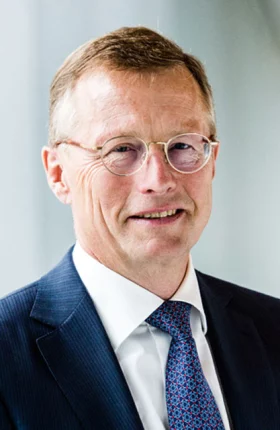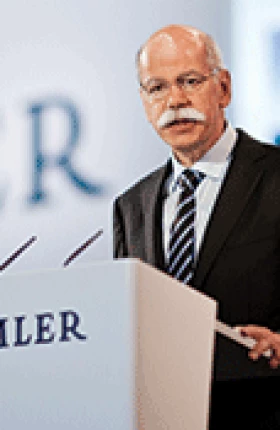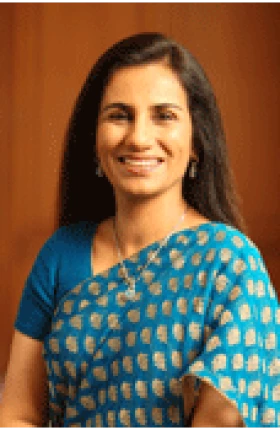Lotte Group has traveled a remarkable journey since its origins as a family-owned confectionary founded in Tokyo in 1948. The business expanded into South Korea in 1967 with the establishment of Lotte Confectionary and opened its first department store there in 1978. Since then, it has become South Korea’s largest retailer.
Today, Lotte Group oversees nearly 70 businesses in a diverse array of industries—from candy manufacturing, beverages, hotels, fast food , and retail to financial services, heavy chemicals, electronics, IT, construction, publishing, and entertainment. The group employs a 170,000-strong global workforce and boasts an annual turnover of $65 billion. Its major operations are overseen by the founding Shin family in Japan and South Korea. Through M&A, Lotte has expanded its business, establishing additional operations in numerous other countries, including China, Thailand, Indonesia, Vietnam, India, the U.S., Russia, the Philippines, Pakistan, and Poland. Revenue from its acquired businesses accounts for 40 percent of the total.
What has fueled Lotte’s success? According to the group’s chairman, Dong-bin Shin, an unwavering commitment to the management principle of “growth through change” has played a central role. Shin—a seasoned leader with education and work experience in Japan, South Korea, the U.S., and the UK—recently sat down with Janme Sinha, BCG's chairman for the Asia-Pacific region, to share his insights on Lotte’s approach to growth. Edited excerpts from that conversation follow.
Given the heft and reach of your business today, how do you stay so nimble and continue to grow so aggressively?
We have continued to transform the company from a family-owned entity into a truly international business corporation that has a global, professional mind-set. We also understand that change happens quickly and that we need to remain very agile to adapt. For example, we have had to rethink who our competitors are. Before, we competed against other Asian retailers, like Shinsegae or Hyundai Department Store, but now and in the future, I think our competitors will be the Amazons and Googles of the world. That is the speed of change we are facing, and the market is not respectful of inertia.
You raise a very important point about the speed of change and recognizing it. In today’s business world, we’re being deluged by information. How do you sift through the “noise” and find the important signals indicating changes you need to adapt to?
I try to talk with as many people as possible, not about what is happening at the highest levels of companies, but what’s happening at the customer level. I can’t compete against Amazon on something like big-data centers. But I have some confidence that if I talked with people about things like product delivery, fulfillment, or complaints from customers, we could do better than Amazon on those sorts of things. I need to know my advantage, and build on it. If I am close to the customer, only then can I separate the signals from the noise. If I do this well, I can improve my advantage against a competitor’s strength.
As companies become very large, size can become a disadvantage if executives miss small but important shifts in the competitive arena. How have you stayed current with such trends?
I try to get out of my office as much as possible. Many senior executives prefer to stay in their office and hear only from their subordinates. I get out in the field, not only in Korea but also in other areas where we do business. I like to watch what’s happening in the market myself, including seeing how people are shopping. I spend about 50 percent of my time out of my office. For instance, later today, I will be visiting Lotte Canon, which is a joint venture with Japan’s Canon, to talk with Canon’s people about electronics and IT. I encourage my senior executives to do the same.
How would you describe yourself as a leader?
I’m a goal setter. My vision is for Lotte Group to be one of Asia’s top ten companies by 2018, with $200 billion in annual sales. To get to that vision, we know that we need the right people. For the most part, we grow our talent in-house. If we’re getting into an industry that is less familiar to us, like insurance or financial services, we may look for talent from other companies. One practice that we use to grow the talent we have identified is to have people cycle among different jobs in their industry. In the retail sector, for example, talent might move from a department store to a supermarket. So I like to set goals, pick the right people, and give them good exposure in their industry, and then support them so they can grow with us.
How do you track your top 100 people, stay involved, and make sure that their insights percolate up to you and that they grow?
Sometimes I meet with them one on one, but I prefer small groups. Also, we have a very good management organization, with about 200 people at headquarters, and they check in with the different corporations every day. I also make sure not to neglect our smaller businesses; I probably spend almost as much time with them as I do with the bigger businesses. Some of our small businesses can have a big impact on our brand. For example, I’ll be meeting with the management of our baseball team, which is a very, very small part of our business but very important in terms of the group’s image.
Given the complex, global, and connected world the group operates in, what do you look for in leaders for Lotte? What capabilities should they have? What values?
I think that passion is the most important thing in a leader, and passion is one of our core values. The second capability I seek is the ability to communicate—with me and with subordinates, and also with customers. This, to my mind, is very important. In many cases, leaders can be very smart but unable to communicate effectively with others, especially with their direct reports. I look also for agility—leaders need to be able to see what is changing and adjust. Leaders at Fuji, for example, saw that because of digitalization, the film market evaporated. And they transformed their company to adapt, while some others did not. It is also important that our leaders show a willingness to cooperate, to share ideas. In fact, cooperation is another one of the group’s core values, along with customer centricity, creativity, responsibility, and passion. Finally, knowing how to develop others also matters.
Once you find high-potential people, how do you equip them for leadership?
At Lotte, people who want to become CEO of one of our larger businesses need to start by managing one of our overseas divisions. These are usually relatively small businesses, but the manager has to deal with the complete set of challenges that come with any business—like legal, marketing, production, and sales. Once they have shown they can do well in this role, they can move on to a position as CEO of a larger business.
Lotte has become a leading recruiter of women. How do you leverage diversity in your workforce?
In most of our companies—confectionary, food, retail—much of the sales are coming from women. I think that is because they are the ones who can solve customers’ problems. I think we need diversity to survive. Today, I believe that about 40 percent of our new recruits are women. In the future, maybe 60 percent of them will be women. For many of our businesses, most of the customers are women. But even in businesses that are supposedly a man’s business, like construction, women can be the customers who are making decisions, like choosing apartments for their families to live in.
Looking ahead ten years, what do you see as the biggest challenges facing Lotte Group?
In terms of our retail business, I think the biggest challenges will come from companies like Amazon or others I do not know yet, which will be new competitors. But for our retail and other businesses, like manufacturing, managing the customer touch points will be very important. There are so many touch points now, from digital, where companies can use data that is quickly available, to pre-selling; for example, customers using social networking to get their friends involved in what they are buying and using.
Every minute of every day, someone must need time with you. How do you manage your time, including making time for yourself, your family, and personal interests?
For managing my time at work, I try to make my schedule as flexible as possible, so I can change it whenever I need to, and I leave space open in my agenda every day. If I have every minute scheduled, there is no way to manage it. This way I can prioritize. Usually, if somebody urgently needs to meet with me, I think that’s more important than normally scheduled meetings, like my monthly dinners with executives in Japan. Those can be changed if I put some flexibility into my schedule. With my family, my son lives in New York, and my wife and daughter live in Tokyo. I only visit Tokyo twice a month, so sometimes they come here to Seoul.
What are you most proud of about leading Lotte Group up to today? What legacy would you want to leave?
I’m proud of helping to increase our sales by ten times in 15 years or so. That has accelerated the expansion of the group. About legacy, I would like to leave a legacy of destructive innovation. For instance, we established Lotte Mart hypermarkets, then we recently set up a premium outlet mall, and now we have ten of those malls. If you ask the CEO of one of our department stores, which are independent businesses, how he feels about the new premium outlets, he probably would say he's not happy, because the outlets will affect his sales. But if we don’t keep setting up these new kinds of businesses, somebody else will, so it’s better that we do it ourselves. And if there is something better than the Lotte Mart hypermarkets that we should do, then no question, I would do that, even if it destroyed Lotte Mart.
Looking ahead to the next century, what advice would you give a new leader today about their role?
I think you need to have a lot of curiosity about new things and things that are changing. You also have to think about what you will be doing next with your different businesses. For example, if you are CEO of Sony, what will you do with TV? I think that’s very interesting.
Thank you so much for your time. This has been a fascinating discussion.





